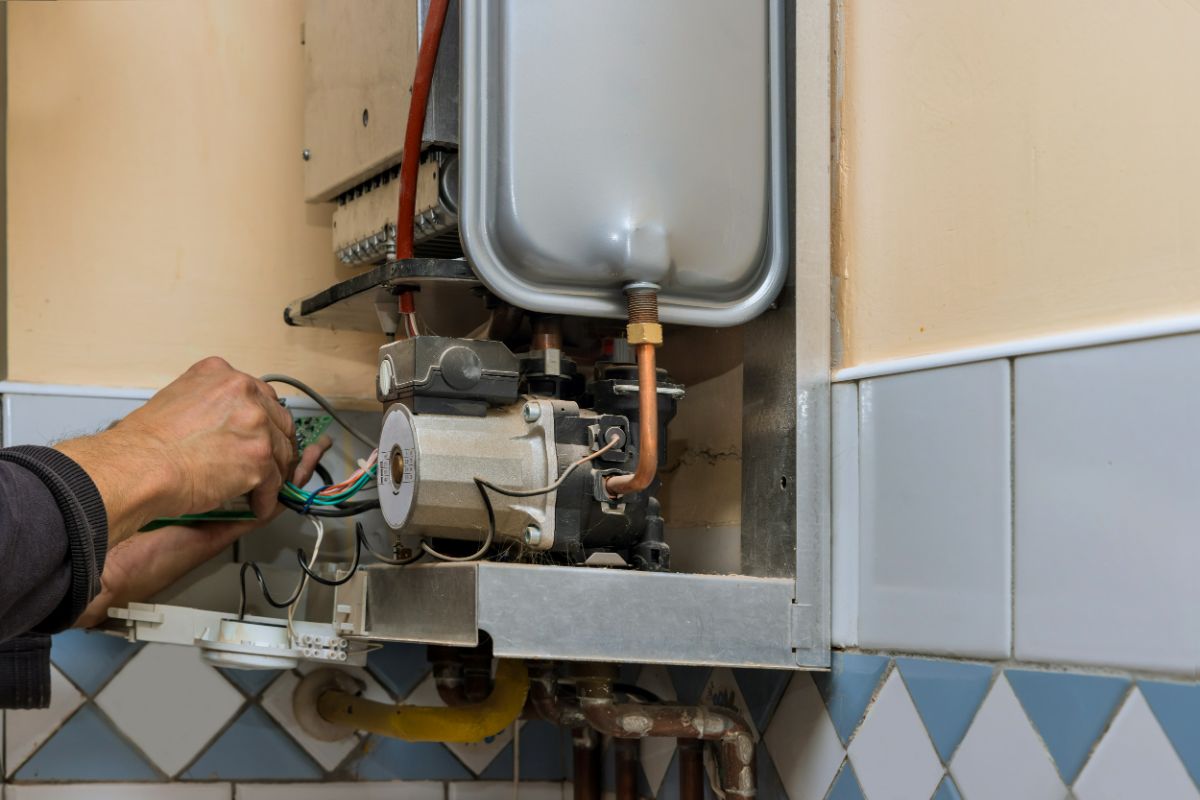How to Extend the Lifespan of Your Home's Hot Water System By MaintenanceSimple Steps to Maintaining Your Home's Hot Water System
How to Extend the Lifespan of Your Home's Hot Water System By MaintenanceSimple Steps to Maintaining Your Home's Hot Water System
Blog Article
We have stumbled on the article about Tips on Maintaining a Water Heater listed below on the web and reckoned it made perfect sense to relate it with you on this site.

Hot water is important for everyday convenience, whether it's for a revitalizing shower or cleaning recipes. To ensure your hot water system runs efficiently and lasts longer, routine upkeep is crucial. This post supplies useful ideas and understandings on how to preserve your home's warm water system to stay clear of disruptions and costly repair work.
Introduction
Preserving your home's warm water system could appear challenging, however with a couple of straightforward actions, you can guarantee it runs efficiently for several years ahead. This overview covers every little thing from recognizing your warm water system to do it yourself maintenance suggestions and understanding when to contact expert assistance.
Significance of Maintaining Your Hot Water System
Normal upkeep not just expands the life expectancy of your hot water system however also ensures it runs successfully. Ignoring upkeep can result in lowered performance, higher energy bills, and also early failing of the system.
Indications Your Hot Water System Demands Maintenance
Knowing when your warm water system needs focus can stop major concerns. Look out for indicators such as inconsistent water temperature level, odd noises from the heater, or corroded water.
Purging the Water Heater
Flushing your hot water heater eliminates debris buildup, boosting effectiveness and lengthening its life.
Checking and Changing Anode Rods
Anode rods protect against rust inside the container. Inspecting and replacing them when broken is important.
Facility Issues Calling For Expert Help
Instances include significant leaks, electric troubles, or if your water heater is continually underperforming.
Routine Expert Upkeep Advantages
Specialist upkeep can include complete inspections, tune-ups, and making sure compliance with safety and security requirements.
Evaluating and Adjusting Temperature Level Settings
Readjusting the temperature setups guarantees optimum performance and safety and security.
DIY Tips for Upkeep
You can carry out numerous maintenance jobs yourself to maintain your hot water system in top problem.
Checking for Leakages
Routinely evaluate pipes and links for leaks, as these can bring about water damage and greater bills.
Comprehending Your Warm Water System
Before diving right into maintenance tasks, it's handy to recognize the fundamental parts of your hot water system. Usually, this consists of the water heater itself, pipelines, anode poles, and temperature controls.
Regular Monthly Upkeep Tasks
Regular regular monthly checks can aid catch minor concerns before they intensify.
Examining Pressure Relief Valves
Checking the stress relief valve ensures it works appropriately and prevents excessive pressure accumulation.
Shielding Pipes
Insulating warm water pipelines reduces heat loss and can conserve power.
When to Call a Specialist
While DIY maintenance is helpful, some problems call for specialist proficiency.
Final thought
Normal upkeep of your home's warm water system is important for effectiveness, durability, and price financial savings. By adhering to these pointers and knowing when to seek professional help, you can guarantee a trustworthy supply of warm water without unanticipated disturbances.
How to Maintain and Troubleshoot Your Heat Pump Water Heater
Know Your Water Heaters Error Codes and How to Clear Them
If your unit is WiFi-enabled, pay attention to the notifications your water heater system sends you and make sure to read and investigate error codes as soon as possible. If your machine has an error code readout on the unit, use your owner’s manual for the hot water heater and find out what the codes mean and how they might be affecting your water heating system. Follow the manufacturer’s directions to assess the issue and clear the code, or call a licensed plumber to take care of that for you.
Change Your Filters Monthly or As-Needed
Heat pump water heaters come equipped with an air filter, usually on the top of the unit where the water heater pulls air into the compressor. Check the filter every few months (put a reminder in your smartphone to make sure you don’t forget!). This will keep peak air flowing into your unit, helping it to work as efficiently as possible and resulting in energy savings over time.
Clean the Condensate Lines
Heat pump water heaters have a condensate drain. As the unit dehumidifies the surrounding area, the moisture has to go somewhere! Make sure to clean this condensate line every year to ensure it doesn’t get backed up with sediment or mold.
To clean the condensate lines, pour a cup of bleach in the access opening of the unit to kill any mold or mildew. Check that the bleach or water flows freely out of the lines, and unclog the lines if needed.
Flush Your Heat Pump Water Heater Annually
Heat pump water heaters are also sometimes referred to as hybrid heat pump water heaters. This is because they contain a backup heating electric heating element inside the tank: the same kind of anode rods used in traditional electric water heaters. That anode rod can become corroded over time from the minerals in your water, and it can begin to decay, break entirely, or heat less efficiently as it becomes corroded. One way to minimize or avoid this corrosion is by flushing your heat pump water heater annually. Just like flushing standard electric or gas water heaters, flushing your water heater is something that any homeowner can DIY if they have a few basic tools and some gumption.
https://www.waterheatersnow.com/blog/how-to-maintain-and-troubleshoot-your-heat-pump-water-heater

We were shown that article on Water Heater Maintenance Tips You Can't Afford to Forget from a buddy on our other web address. Loved our blog posting? Please share it. Help others check it out. Thank you for being here. Kindly visit our blog back soon.
Details Report this page